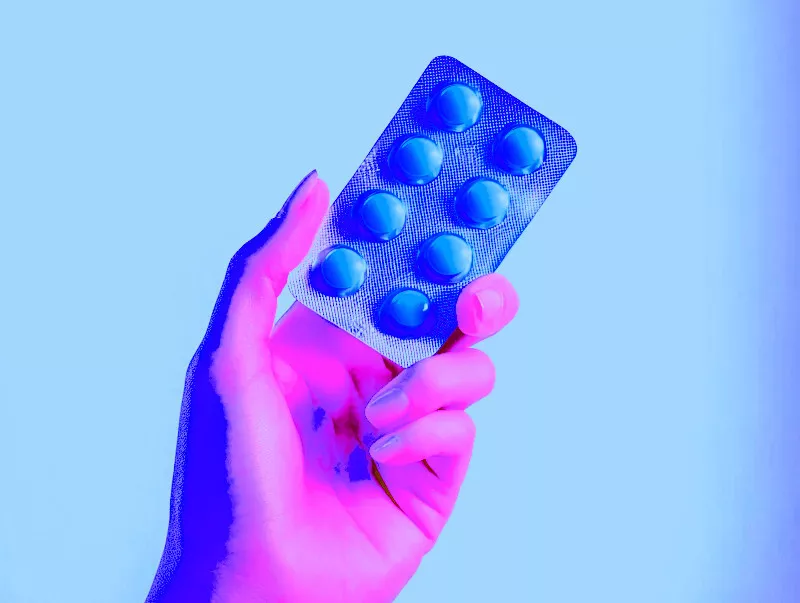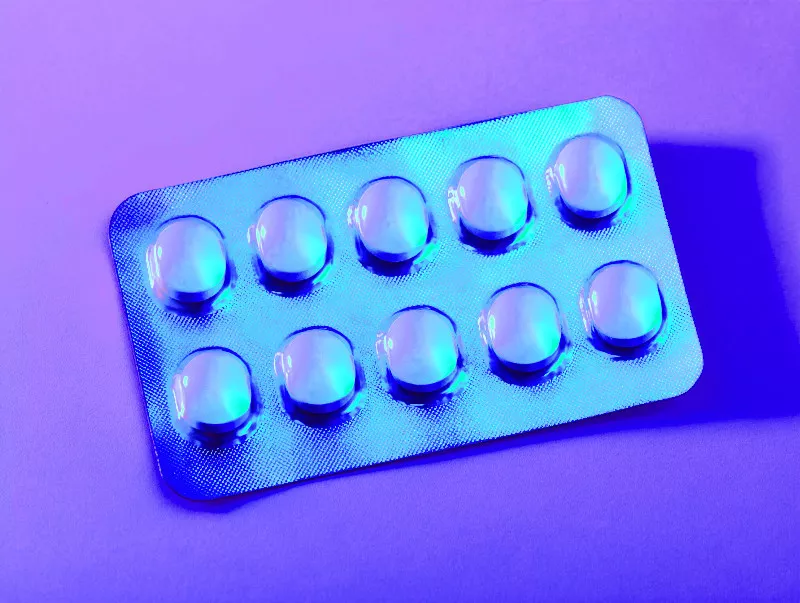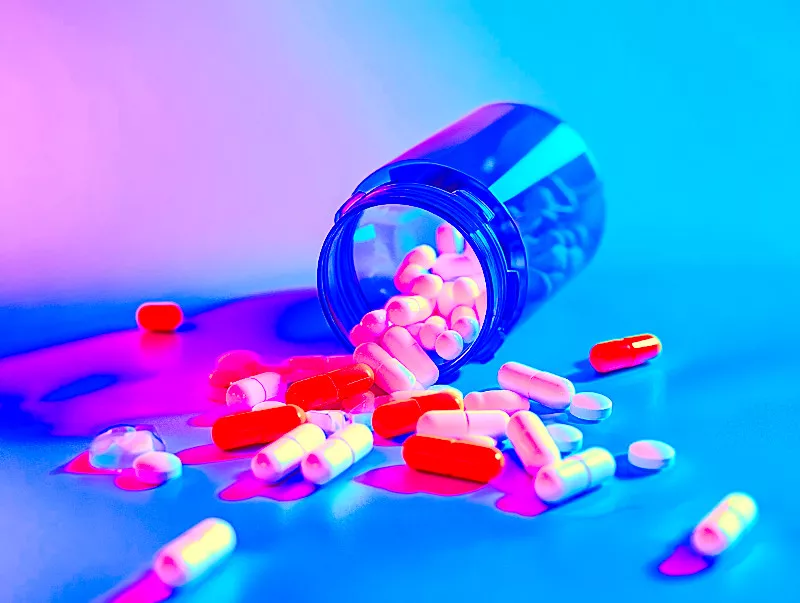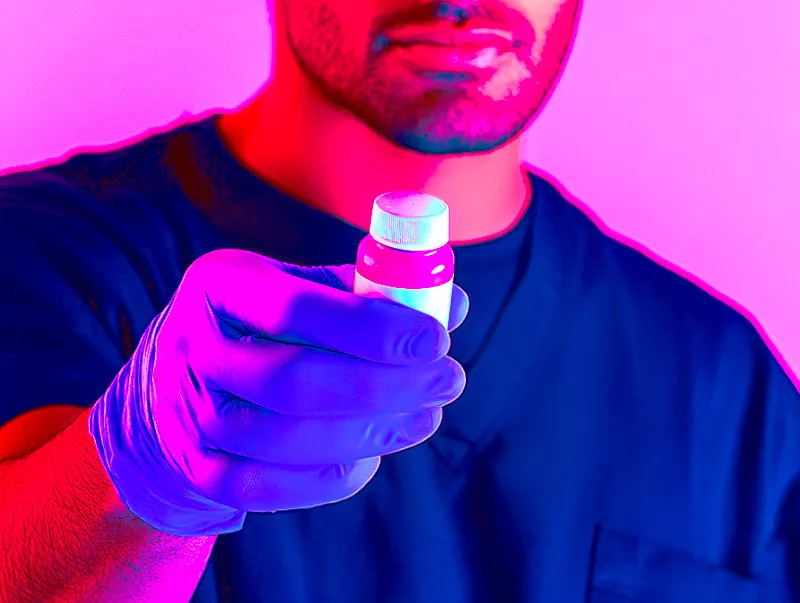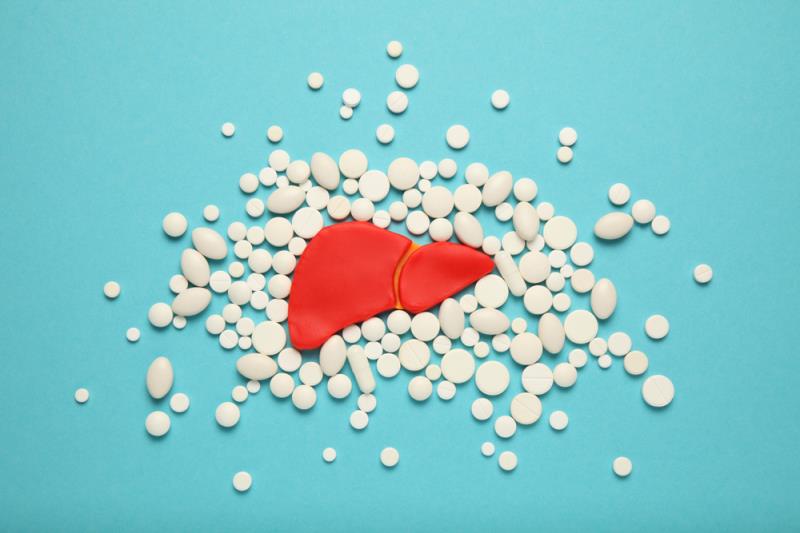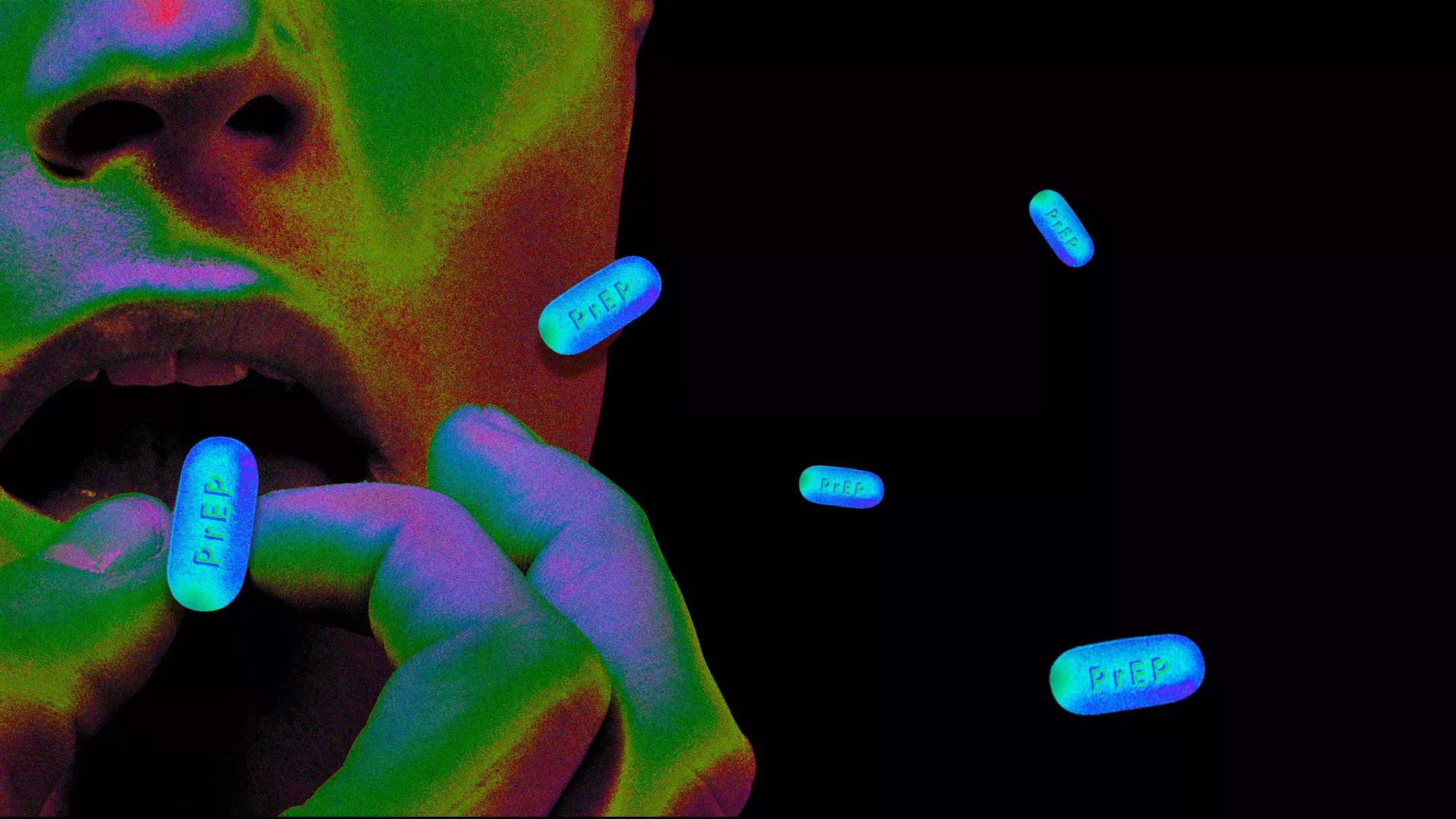Motion Sickness (Seasick) Prevention Clinic in Bangkok, Pattaya, Phuket, Koh Samui and Chiang Mai (Thailand)
6544
Clinic for Motion Sickness (Seasickness) Prevention in Bangkok, Pattaya, Phuket, and Chiang Mai (Thailand)
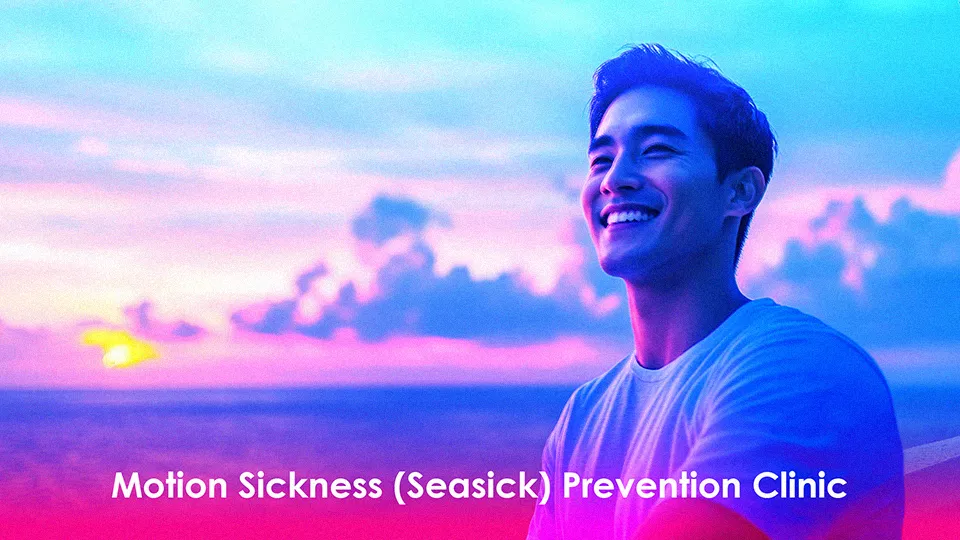
Motion Sickness (Seasick) Prevention Clinic in Bangkok, Pattaya, Phuket and Chiang Mai (Thailand)
What is Motion Sickness?
Motion sickness occurs when there’s a mismatch between the movement your eyes perceive and what your inner ear detects. This can lead to dizziness, nausea, and vomiting. You might experience motion sickness while traveling in a car, train, airplane, boat, or on amusement park rides. While it can make traveling uncomfortable, there are effective strategies to prevent and manage it.
Signs & Symptoms of Motion Sickness
Severity Level | Signs | Symptoms |
Mild | Burping Yawning Pale skin on the face and around the mouth Acid reflux Excessive saliva production Increased urination | Stomach awareness Malaise Headache Irritability Drowsiness Fatigue |
Moderate | Could diaphoresis Flushing Increased body warmth Hyperventilation Vomiting | Nausea Nonvertiginous dizziness Apathy Depression Disinterest in social activities Disinclination for work Decreased cognitive performance Exaggerated sense of motion Increased postural sway |
Severe | Inability to walk Incapacitation Loss of postural stability Persistent retching | Social isolation |
Motion Sickness Treatments
If these self-care strategies don’t help, consider exploring medical options at your nearest PULSE Clinics & Pharmacy. They offer both over-the-counter and prescription medications.
1. Antihistamines
Antihistamines are usually used for allergies, but those containing dimenhydrinate (Dramamine), diphenhydramine (Benadryl), or meclizine (Antivert) can also help.
Children over 2 can generally take dimenhydrinate and diphenhydramine, but check with a doctor for the right dosage. Be aware that antihistamines can cause drowsiness, so avoid taking them if you plan to drive.
2. Scopolamine
Scopolamine (Transderm Scop, Scopace, Maldemar) is a prescription medication available as a pill or skin patch, which you place behind your ear for several days. It can cause side effects like a dry mouth.
People with glaucoma or other health issues should consult a doctor, as it may not be suitable for them.
Children, pregnant or nursing individuals, those with liver or kidney problems, and older adults should also check with a doctor due to the risk of serious side effects, including rare cases of lethal toxicity in children.
3. Promethazine
Promethazine is a prescription antihistamine for motion sickness that reduces nausea signals from the brain.
For adults under 65, the dosage is 25 mg twice daily, taken 30 minutes to an hour before travel. Children ages 2 to 17 can take 12.5 to 25 mg twice daily.
Consult a child's doctor if they have any medical conditions to check for possible medication interactions.
Motion Sickness Patches
Motion sickness patches are transdermal patches designed to prevent or ease symptoms of motion sickness. They typically contain an active ingredient like scopolamine, which is an anticholinergic drug that helps reduce the effects of motion on the vestibular system (the part of the inner ear involved in balance).
To use the patch, you usually apply it behind your ear a few hours before traveling. The medication is absorbed through the skin over time, providing continuous relief for several days. These patches are often used for long car rides, cruises, or flights. Always consult a healthcare professional before using them, especially if you have any pre-existing conditions or are taking other medications.
Contact Your Emergency Help Unit Now!
We can help you with your emergency medication needs!
🆘 Please email us at info.bkk@pulse-clinic.com or chat on your preferred platform.
![]() +66-84-226-2569
+66-84-226-2569  @PulseRx
@PulseRx ![]() PulseClinic
PulseClinic
Chat with PULSE CLINIC ONLINE Department
Motion-aid Injection (Dimenhydrinate)
Dimenhydrinate is an antihistamine that helps prevent and treat nausea, vomiting, and dizziness from motion sickness when oral medication isn't an option. It should not be used in newborns due to a higher risk of side effects.
This medication can be given as an IV injection into a vein or as an injection into a muscle by a healthcare professional, as directed by a doctor. The dosage is based on your condition and response to treatment.
Contact Your Emergency Help Unit Now!
We can help you with your emergency medication needs!
🆘 Please email us at info.bkk@pulse-clinic.com or chat on your preferred platform.
![]() +66-84-226-2569
+66-84-226-2569  @PulseRx
@PulseRx ![]() PulseClinic
PulseClinic
Dimenhydrinate’s Side Effects
Common side effects of this medication include drowsiness, constipation, blurred vision, and dry mouth/nose/throat. If these persist or worsen, inform your doctor or pharmacist. To relieve dry mouth, try sugarless candies, gum, or water.
Your doctor prescribed this medication because they believe the benefits outweigh the risks; many people experience few serious side effects. However, contact your doctor immediately if you notice serious issues like mood changes, fast heartbeat, tremors, or difficulty urinating.
Seek urgent medical attention for severe side effects, including seizures or signs of a serious allergic reaction, such as rash or difficulty breathing. This is not a complete list of side effects; consult your doctor or pharmacist for any others.
Dimenhydrinate’s Precautions
Before using dimenhydrinate, inform your doctor or pharmacist if you are allergic to it or diphenhydramine, or if you have any other allergies, as it may contain inactive ingredients that can cause reactions.
Share your medical history with your doctor, especially regarding breathing issues (like asthma), glaucoma, stomach problems (such as ulcers), urinary difficulties (like an enlarged prostate), heart disease, high blood pressure, liver disease, seizures, or overactive thyroid.
This medication may cause drowsiness or blurred vision. Alcohol or marijuana can increase drowsiness, so avoid driving or operating machinery until you feel alert and clear-headed. Talk to your doctor if you're using marijuana.
Before any surgery, inform your doctor or dentist about all medications and supplements you are taking.
Children may react differently to this medication, sometimes becoming excited instead of drowsy. Older adults may also be more sensitive to side effects like drowsiness, confusion, constipation, or urinary issues, increasing the risk of falls.
During pregnancy, use this medication only if necessary, and discuss the risks with your doctor. It can pass into breast milk and may affect a nursing infant, so consult your doctor before breastfeeding.
Motion Sickness Causes
Motion sickness occurs when there is a conflict between the signals your brain receives from your inner ear, eyes, and deeper body parts. Here are some common causes:
- Sensory Conflict: The brain receives conflicting information about movement. For example, if you're reading in a moving vehicle, your inner ear senses motion while your eyes are focused on a stationary object.
- Vestibular System Issues: Problems with the inner ear, which helps control balance, can increase susceptibility to motion sickness.
- Visual Input: Certain visual stimuli, such as rapid movements or a lack of visual reference points, can trigger symptoms.
- Postural Instability: Difficulty maintaining balance can contribute to feelings of nausea.
- Stress and Anxiety: High levels of stress or anxiety can exacerbate motion sickness symptoms.
- Genetic Factors: Some individuals are more prone to motion sickness due to genetic predispositions.
- Age: Motion sickness is more common in children, but many outgrow it. Adults can also experience it, especially if they haven't traveled often.
Motion Sickness Prevention Without Medicine
Avoiding triggers is the best way to prevent motion sickness, but this isn’t always feasible while traveling. Here are some strategies that may help reduce or prevent it:
- Sit in the front of a car or bus.
- Opt for a window seat on planes and trains.
- If possible, lie down, close your eyes, sleep, or focus on the horizon.
- Stay hydrated by drinking water and limiting alcohol and caffeine.
- Eat small amounts of food regularly.
- Avoid smoking; even short breaks can help.
- Distract yourself with activities like listening to music.
- Use flavored tablets, such as ginger candy.
Immediate Relief Tips for Motion Sickness
Adjusting your position or finding a distraction when you notice the onset of motion sickness can help ease symptoms before they worsen. Here are some tips that may offer immediate relief.
- Take control: If you're a passenger, think about taking over the driving. According to the Centers for Disease Control and Prevention (CDC), motion sickness happens when there’s a discrepancy between what your eyes see and what your inner ear feels. Driving may help align these senses better, potentially reducing your symptoms.
- Face the direction you’re going: If driving isn’t possible, try to face the direction you’re traveling. This can help align your visual sense with your inner ear. On a ferry, consider moving from the stern (back) to the bow (front) of the boat, as some people find that sitting at the front alleviates symptoms. In a car, you might also swap out the rear seats for a spot in the front.
- Keep your eyes on the horizon: You might find that concentrating on a stationary object in the distance helps reduce visual stimulation. Additionally, you may need to change your position or switch seats in the vehicle you’re traveling in.
- Change positions: Some people find relief from motion sickness by lying down, while others prefer standing. Your best option may vary based on your mode of travel, so it’s worth experimenting. In a car, leaning your head against the headrest can help reduce head movements, so try different positions to see what works for you.
- Get some air: You might find that opening a window or getting some fresh air helps with motion sickness. If that’s not possible due to the weather or your mode of travel, try directing air vents toward you or using a fan to create a breeze on your face.
- Nibble on crackers: Eating a light snack, such as saltine crackers, can help ease nausea. Heavier, greasy, or acidic foods might worsen your symptoms due to their slow digestion. Consider bringing your snacks, focusing on easy-to-digest options.
- Drink some water or a carbonated beverage: Sips of cold water or carbonated drinks like seltzer can help reduce nausea. Avoid caffeinated beverages, as they may worsen dehydration. Milk and apple juice are also good options.
- Distractions: Turn on the radio or engage in a conversation to take your mind off how you're feeling. You might find that distracting yourself helps you feel better.
- No screens: Those with motion sickness might struggle to read books or texts on devices because of a sensory mismatch between the inner ear and the eyes. Focusing on nearby objects can exacerbate symptoms.
When do I see a doctor?
Your symptoms should improve once the motion stops, and motion sickness doesn’t cause long-term issues. You may even acclimate to motion during extended trips, like cruises, after a few days.
If you travel often for work or feel anxious about the possibility of getting sick on trips, consider seeing a doctor. Prescription medications or long-term solutions may help manage your motion sickness.
Takeaway
Motion sickness is a temporary condition that affects some people while traveling in cars, boats, planes, or other moving vehicles. You can reduce nausea and prevent vomiting, such as using over-the-counter or prescription medications, applying pressure points, focusing on a stable point, and other techniques.
If natural remedies don’t help, consider discussing your symptoms with a doctor. They may suggest additional treatments or prescribe medication to assist you.
Contact Your Emergency Help Unit Now!
We can help you with your emergency medication needs!
🆘 Please email us at info.bkk@pulse-clinic.com or chat on your preferred platform.
![]() +66-84-226-2569
+66-84-226-2569  @PulseRx
@PulseRx ![]() PulseClinic
PulseClinic
Chat with PULSE CLINIC ONLINE Department
Loading...
Clinic Locations
Loading...







